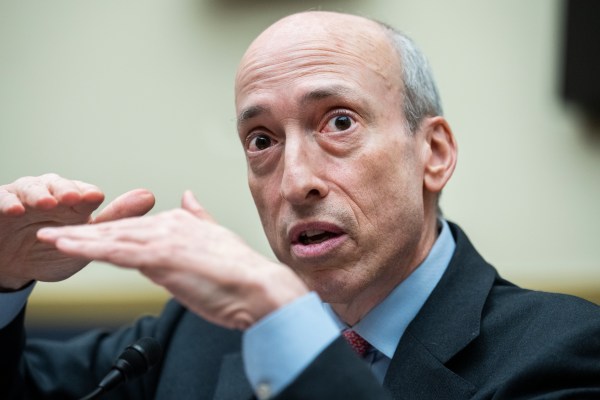This morning, the U.S. Securities and Exchange Commission (SEC) sued Coinbase, the largest domestic cryptocurrency exchange, for securities laws violations. The suit comes just one day after the SEC sued Binance, the largest crypto exchange in the world by volume, also over securities matters.
In the wake of the Binance suit, Coinbase shares fell 9% yesterday, and they are down more than 20% in early trading this morning. The company has shed billions of dollars in value thus far this week.
After the SEC announced its suit against Binance, the value of many major crypto assets declined — BNB, the Binance house token is down about 7%. The Coinbase news is still being digested by the larger web3 world, but all major crypto coins are in the red in the last hour. Coinbase did not share a comment following a TechCrunch+ request by the time of publication.
Both filings listed a handful of cryptocurrencies as securities, with 12 different assets noted in the Binance suit and 13 in the Coinbase one, though the SEC said it was “not limited to” those. Both two suits mentioned SOL, ADA, MATIC, FIL, SAND and AXS. The two largest cryptocurrencies by market capitalization, Bitcoin and Ethereum, were not mentioned, but we should note that SEC Chair Gary Gensler has called Bitcoin a commodity in the past.
“The SEC’s reliance on an enforcement-only approach in the absence of clear rules for the digital asset industry is hurting America’s economic competitiveness and companies like Coinbase that have a demonstrated commitment to compliance. The solution is legislation that allows fair rules for the road to be developed transparently and applied equally, not litigation. In the meantime, we’ll continue to operate our business as usual,” said Paul Grewal, chief legal officer and general counsel of Coinbase.
The lawsuits have been criticized widely by the crypto industry, who argue that the agency is overreaching by listing a number of cryptocurrencies as securities without addressing the assets individually in detail.
To the regulators’ point, starting individual lawsuits for the thousands of cryptocurrencies out there would not only be tedious and time consuming, but repetitive and unnecessary if the agency finds the assets fit under the same umbrella.
The SEC has lately taken an increasingly active role in the burgeoning blockchain sector, and has even served Coinbase with a Wells notice. Coinbase, in contrast, has taken a publicly defiant tone, arguing that the crypto market deserves a tailored package of rules.
The SEC, however, disagrees, apparently determined on applying existing securities law to the American company.
The Binance and Coinbase suits, while seemingly related, allege different violations. Binance’s actions, per the SEC’s telling, claim a web of fraud and clear attempts to circumvent American securities law by operating in the U.S. under false pretenses. In contrast, Coinbase has generally taken a more engaged approach to regulation, making its time in the barrel taste different. Many voices in the technology market, more generally, have lauded Coinbase for its approach to regulation and keeping up with certain elements of domestic law.
In late April, Coinbase filed a petition to compel the SEC to respond to a months-old petition that asked whether the securities regulator would allow the industry to be regulated using existing agency’s frameworks. In the July 2022 petition, Coinbase asked whether the SEC would “propose and adopt rules to govern the regulation of securities that are offered and traded via digitally native methods.” The SEC never responded to the petition.
What about startups?
Even before these lawsuits, the value of investment into crypto-focused startups was already falling toward levels not seen in years. The rapid-fire suits from the SEC will do little to improve the situation.
Indeed, the better question may be what risk venture backers of the assets that the SEC has demarcated as securities could face. If they sold their holdings in tokens earned from investments, have they run afoul of securities laws themselves? And if venture investors did sell unregistered securities while enjoying information that may have not been public knowledge, could they run afoul of insider-trading rules?
To avoid accidental hyperbole, we don’t know. But uncertainty is itself an investment killer, and more uncertainty will likely slow capital disbursement in the sector even more.
A handful of founders have told TechCrunch+ that they’re considering moving abroad in order to keep their crypto operations running. While the latest move by the SEC aims to protect investors, it could also impede innovation — a gamble the agency is seemingly willing to make.
Crypto insiders refer to a period of recession in their market as a winter, and this week’s news may well play the groundhog for this extended cold wave. Before the Binance and Coinbase suits, interest in NFTs, a formerly growing sector, was declining alongside exchange volume. What Bitcoin and friends needed was a shot in the arm not a punch to the face.
It is unlikely that the Coinbase suit is the end of crypto in the United States, but it does indicate that unless web3 companies are ready to comply with domestic securities laws, their time of operating in a legal gray area may soon be ending.
This story is developing. Stay tuned.
Editor’s note: This story was updated to add a comment from Coinbase.
